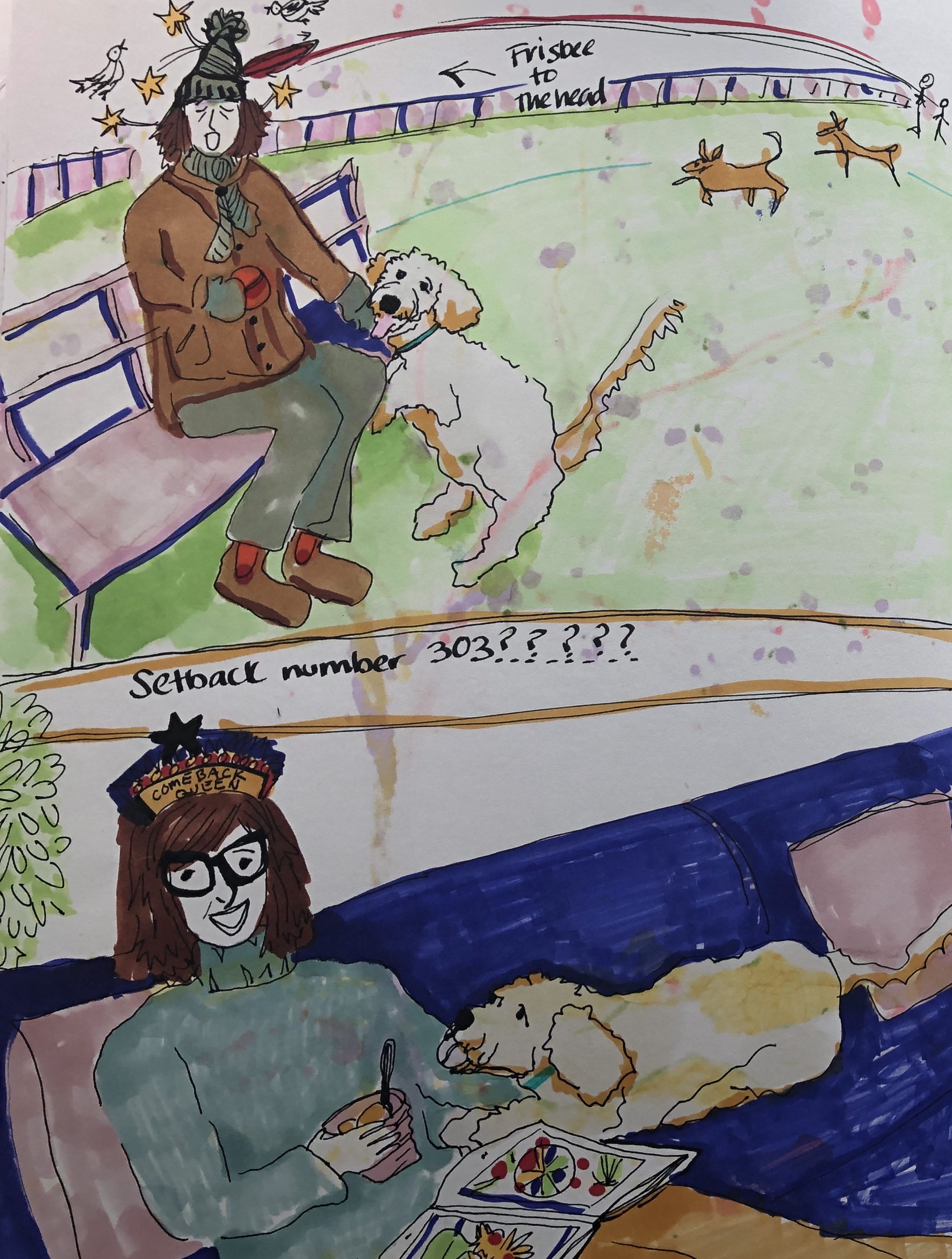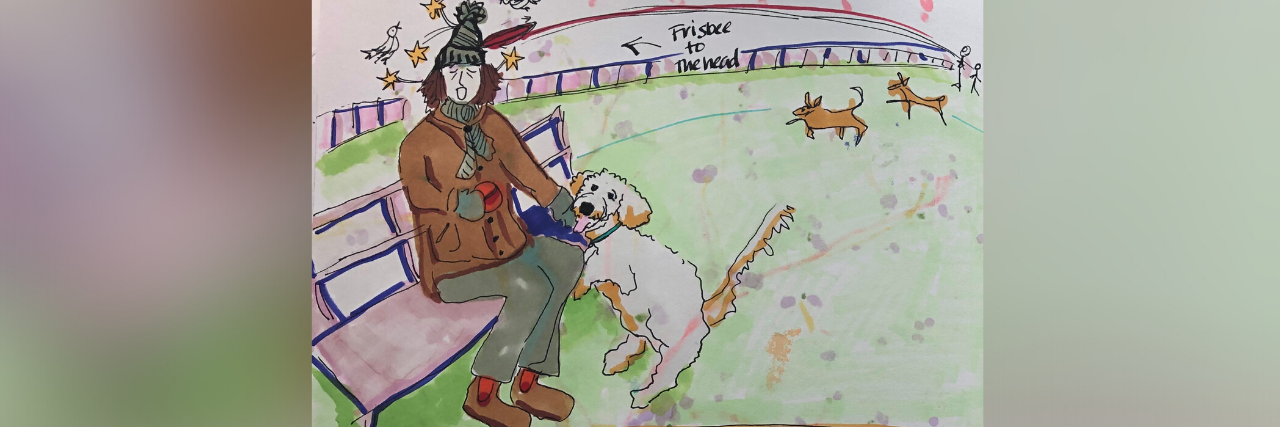What a 'Setback' Means in My Life With a Traumatic Brain Injury
Recently I was accidentally whacked in the head with a frisbee at the dog park. Now this may sound funny, and it most likely looked funny to those who saw it from a distance. But for someone recovering from a traumatic brain injury, it was not funny at all.
Since the original TBI five years ago, I have repeatedly been warned by my neurologist, vestibular therapist and neuro-optometric doctor to avoid jolting or hitting my head again. This has meant implementing many precautions and lifestyle changes. I gave up running and biking. We don’t go dancing anymore. I avoid crowds for a variety of TBI reasons, and don’t stand near people in public. I can’t drive anymore because of visual complications from the TBI, and I also try to avoid getting into vehicles. We sold our house in the burbs to move to the city so I could walk to places and regain some independence.
But no matter how many lifestyle changes and precautions I implement, sometimes life throws in the occasional accident. Such accidents turn my TBI recovery life upside down. Just when I have made successful progress in my rehabilitation, an unexpected event occurs and pushes me back in time. In TBI recovery, this is officially labeled a “setback.”
Setbacks mean my thinking becomes foggier and scattered. My short term memory is slower. Extreme fatigue and a decreased tolerance for noises and visual movements sets in. Auditory processing is fuzzier and new learning is confusing. I can forget to eat. I can forget to shower. I forget what I’m doing while I’m doing it. Interruptions become frustrating mental detours. Familiar routines feel like running marathons. Rest is as inevitable as the breakthrough migraines.
Intentional isolation and selective interactions with others are necessary. The entire pace of my life slows down. Day by day, I try to balance what I can actually do with what I used to be able to do just the day before — all the while making apologies to those who get caught in the crossfire. Setbacks feel bad enough for the person who has them. But they also impact those who love the person with the setback.
Luckily my husband is an excellent cook and caregiver. After five years, he has learned that a setback means he gets less of the functioning me and more of the TBI me. He backs off from our normal conversing and tries to be patient. We change our plans to give me more quiet time. He does extra cooking, extra errands, extra reminders to eat, extra laundry, extra everything. He’s become accustomed to this rollercoaster, but he often misses me when a setback happens.
And then there’s Harry.

Harry is my service dog in training. During a setback, he too gets the short end of the stick. Harry doesn’t get to go to the dog park in the morning. This may not seem like a big deal to you, but it’s a huge deal to Harry. Harry lives to run free to play ball at the dog park. Chasing balls with his friends and playing fetch at the park are Harry’s biggest rewards for working hard.
Instead, we play ball alone in the short hallway of our apartment. I try to arrange for him to have playdates with a canine neighbor. I curtail our long walks together. Sometimes I don’t even walk him. The dog walker or a kind neighbor will substitute. Harry is typically a happy dog, but when his routine changes and his momma isn’t working with him, Harry just isn’t as happy.
With the help of a cognitive-behavioral therapist, I am trying to perceive setbacks as my brain’s way of taking care of me while it responds and rewires, rather than yet another frustration of TBI recovery. If setbacks are the antagonist in a TBI recovery, then my caregiving husband and friends are the protagonists. On this lonely road, they are the ones helping me become the Comeback Queen. Harry’s a protagonist as well. He takes the sting out of the isolation. Whenever he sees me feeling down during the setback, he does the happiest thing he knows. He brings me a ball.
Art by Lisa Katharina.

